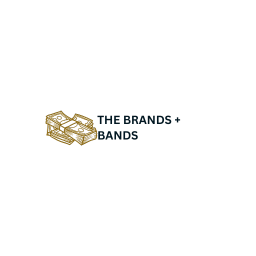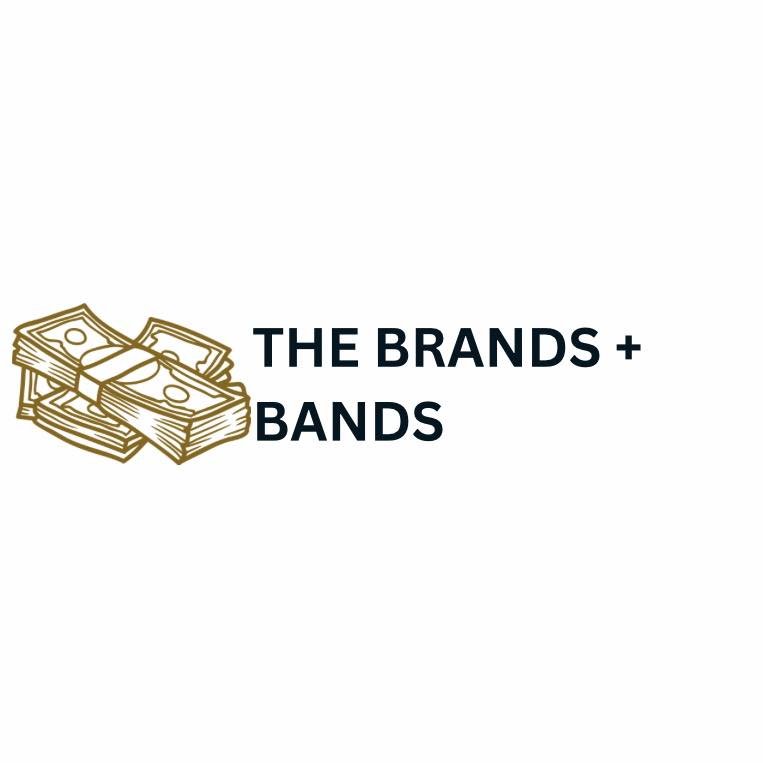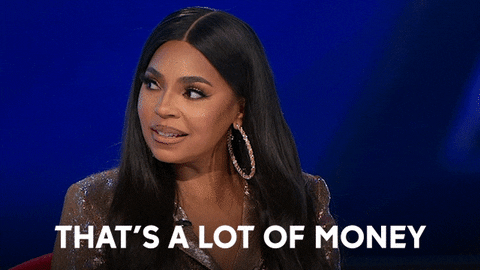Basic Build: Common Money Terms To Pivot Your Paper
Just like anyone else, I scroll social media to laugh but also to learn something. Yet one of the things that I’ve been noticing is the influx of people trying to understand their money in a very loud world. No matter if they do this via social media or watching the news (which can be depressing, btw) - they just want to make sense of the cents in their bank account and wallet. I love this for us. But you remember when I said that the world (especially social media) can be loud, it also can be sometimes wrong.
I’ve noticed some of the questions or commentary have been around a couple of terms that people want to know to grow their money and their understanding of it. Within this post, I wanted to add some of those money terms that I see and talk about them a bit. The reason for me doing this is because we can focus on getting to the millions, but if we don’t understand our means it would be hard to hold on to millions or the over-abundance we will get.
Let’s get into the basics (in no particular order):
High-Yield Savings or HYSA: When it comes to these types of accounts, they are like the regular savings accounts you are used to but you are paid to save. The more you save, the more you’re paid. The thing that people mostly like about HYSA is the APY. With them, they are roughly between 1.05%APY to currently hitting 5.50%. That’s amazing vs. the 0.05% you get with regular savings accounts. The rate can go up and down based upon what’s going on with the Federal Reserve — highly recommended. Some of my recommendations? Marcus by Goldman Sachs, Ally, Capital One. I usually point people to check out Bankrate to check the APY and requirements.
Certificate of Deposit: a CD is like a HYSA but for the long haul. Like you’re putting some money for a goal — like a home. The HYSA is locked in for the amount of time or maturity that you have the CD for: 6 months, 1, 3, 5 years (etc). You can’t add money to the CD or take money out until after it matures (that 6 months, years). There are 12 types of CDs that can apply to your money goals, but the most popular one is Traditional.
Individual Retirement Accounts (IRA): Another popular term - with these you manage these types of accounts vs the 401K that you have with your employer (or if you’re a biz owner — Solo 401K ). Depending on your income, you would either have a ROTH (post-tax) or Traditional (pre-tax). A lot of people contribute (add $ to it) but don’t buy funds. You’re supposed to add money, yes — but also keep a bit in the savings portion while growing the account by investing in funds like Index Funds or ETFs. I also suggest rolling over old 401Ks into your IRA. Recommend Vanguard, Charles Schwab, and Fidelity for these types of accounts.
401K+ 403B: These are the most common retirement accounts that we see offered by employers. While you can open up one on your own through a Solo 401K, we mostly talk about them when it comes to corporations. With these, your company or platform would offer you a slate of investments that feel would be good for you to invest (buy into) in. Based on the allocations or % you could split the 100% of your contributions into your account, you should see growth over time. Your retirement investments are tied to the stock market, so your account value can go up and down.
Budgeting: Budgeting gets a bad rep, and I understand. Budgeting is a way for you to know how much is coming in and how much is coming out each month - you know… to know what’s going on with your money. There are different methods to use, which I talked about here. But the thing that I want people to know about budgeting is oftentimes they don’t pick the right method that matches the reality of how much their life costs. Also, people don’t want to cut some of these expenses or find a cost-effective way to keep it in the budget. Want to learn about budgeting? Read this. Also, join my monthly newsletter about this very topic.
Savings Bond: These are like the idea of a CD but in the form of a loan to the government. When you buy a savings bond, you're lending money to the government. The government agrees to pay back the money you lent, plus interest - which is where your gains come from with them.
Emergency Fund: These types of funds or saving methods are where you are saving for the ‘in case of emergency” of it all. Typically the focus of them is like if you were to lose your job. Do you have a couple of months’ savings (usually what you spend on bills or life costs monthly)? The rule of thumb is that you should have roughly 6-12 months of your costs saved. Quick math: How much do you budget for each month x 12= the amount you should have saved. But keep in mind that CORBA costs as well. Your emergency fund could cover your insurance in case you do get your unemployment quickly and you have enough. Emergency funds are often saved in a HYSA and can be what you make it. Even if you don’t have the full months saved - some is better than none. I also call these Opportunity Funds - because you’re giving yourself the opportunity to be the solution in the situation. Also, having a plan for in case you have to use it is key.
Annual Percentage Yield: APY is what you see when you save into things like a CD or HYSA account. There are even some checking accounts now that offer APYs. You’re compounding (or multiplying) your savings with this type of percentage. We love APY and side-eye APRs. The higher the APY the more you’re getting.
Annual Percentage Rate: APR is the %/ percentage in which you are paying to borrow money. The lower the APR the better and the higher means when you make that payment the bucket of that payment goes towards the interest vs. the principle of what you technically borrowed.
Health Saving Account (HSA): These are a tax-advantaged account that helps you pay for medical expenses. You can only contribute to an HSA if you have a high-deductible health insurance plan. You can pay for things like deductibles, co-pays or things your insurance will not cover. You can also rollover from a traditional IRA to an HSA allowing you to load your HSA immediately to pay for medical expenses on a tax-free basis. Plus, unused funds in an HSA automatically carry over to the next year. You can also invest funds into stocks, etc.
Flexible Spending Account (FSA): These types of accounts are seen more during open enrollment. This is money that you use to pay for certain out-of-pocket health care costs. Tax-Free, with lower contribution limits. You can’t roll over the funds into the next few years. Use or lose.
Money Market Account (MMA): This type of account is another type of savings account where you can access it with checks that you are given by the bank that is designated towards it. They are not the same as the mutual funds aspect that is talked about.
Stocks: Often stocks are talked about, but you don’t fully “get” what they are. When you buy shares of stocks, they give you a small piece of ownership in a company or fund. The company goes public for you to buy stock/shares for them to raise money. Investors buy and sell stocks based on their potential to go up in value (capital gains) or dividends (profit-sharing with the company). Two of my favorite platforms? Charles Schwab and Public Invest.
Will: You often hear about “Last Will & Testament” when it comes to transitioning. A Will is like legal instructions of what you wish for your family, friends, and loved ones to do with your assets and things left behind. Highly recommend you create one along with getting life insurance. While a Trust will keep you for probate (going to court over splitting assets), it is good that you have a layer of protection over your Estate.
Financial Planner: A Financial Planner is someone who walks you through understanding where you are financially and how to get to where you want to be (that’s me). You can look for one to be Certified or CFP to be sure that their work is regulated with ethics and standards set by the board.
529 Plan: This type of account is for the kiddos! They are state-run, tax-advantaged accounts earmarked for educational expenses, from kindergarten up through graduate school, and student loan paybacks.
Uniform Gifts to Minors Act (UGMA)/ Uniform Transfers to Minors Act (UTMA): These are used a lot when it comes to financial planning for kids. These are types of custodial accounts that allow adults to save and transfer assets to a minor. UTMA and UGMA accounts can hurt financial aid eligibility more than comparable 529 plans.
Custodial IRA: You get an IRA and your child can too! These are tax-advantaged retirement accounts that a parent or other adult opens on behalf of a minor. You can invest the same way in these accounts - Stocks, Index Funds, ETFs, etc.
Balance Transfer (Credit Card): This is simply moving debt from one credit card to another. The thing is to be mindful of the APR and terms in which that introduction APR could change. If you’re doing it for a 0%, more than likely you have a timeline to pay that amount you transfer off before the interest goes up (a good bit).
Bonds: Bonds are legit a form of debt. Not like the same one you can get for going to school or buying a car, but these IOUs are a type of loan made between businesses or government entities and investors. The thing that people think about is the interest they “could” make from them, but they can be risky. They are risk-averse to stocks - so when one is up, the other is often down. A lot of talk about the interest boost has been around i-Bonds, too. Know your maturity.
Compound Interest: Thing interest on top of the interest gained over a set period of time. It's calculated by adding interest to the principal sum of a loan or deposit. Compound interest is different from simple interest, which only includes the principal amount.
Inflation: We hear about it and we feel it in our wallets. The rate (speed) of increase in prices of goods and services over time, which can cause a decrease in purchasing power. Inflation can hurt the purchasing power of both consumers and businesses. Which we are seeing play out right now. You can learn more about inflation and how to implement that here.
These are just some of the many terms that I see people ask about and I will update this list as we go along. Not only do I want you to know what these mean but what it means to how you learn and earn your money. If there are any others that you want me to add, comment below, and will update the list with your suggestion (even call you out for it). The thing when it comes to not only the personal economy and community economy is that we learn from each other without judgment because we are all trying to figure out our figures on some scale.
Dassit.






